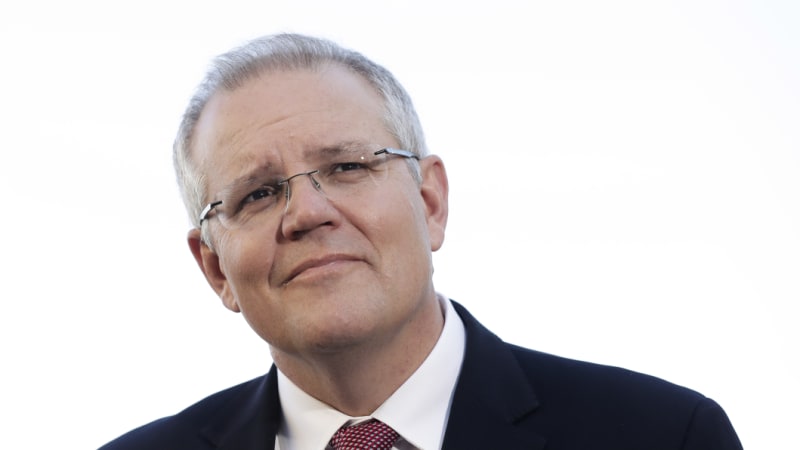IN THE MEDIA
Morrison rightly challenges foreign policy inertia on Jerusalem, Iran
December 19, 2018 | Colin Rubenstein

An edited version of this article was published in The Australian – 19 December 2018
Prime Minister Scott Morrison’s speech at the Sydney Institute last Saturday has been met with criticism for reviewing and adjusting long-standing foreign policies, as though inertia were a virtue in itself.
Good policymaking demands periodic review and adjustments to reflect changing realities. The government’s decisions on Australia’s recognition of Israel’s capital, its new approach towards voting decisions at the United Nations, and increased pressure on Iran show principled leadership and are positive steps in the right direction for Australia.
Australia had never declared Tel Aviv was Israel’s capital in the past but merely had situated its embassy there, a vestige of the brief period when the UN still entertained the idea of maintaining Jerusalem and Bethlehem as an international city. This idea was rendered obsolete when Jordan annexed eastern Jerusalem and the West Bank after the 1948 war and Israel moved its seat of government to the section of Jerusalem that remained under its control.
Morrison’s decision to recognise west Jerusalem as Israel’s capital did not upend Australian policy so much as end the state of diplomatic ambiguity that had existed for nearly 70 years and had, over time, become increasingly unhelpful for peace.
It’s important to remember that by 1971, over 40% of countries that had embassies in Israel located them in west Jerusalem.
Contrary to claims by some critics, Morrison’s Jerusalem policy does not mimic either the US or Israeli positions. In recognising Jerusalem as Israel’s capital last year, the White House simply said that the announcement did not imply US recognition of Jerusalem in any specific borders, leaving room for negotiated compromise between the parties. Meanwhile, Israeli government policy has always been to support Jerusalem as an undivided city, although behind closed doors, the Clinton (2000) and Olmert (2008) peace plans presented to the Palestinians both provided for a Palestinian capital in eastern Jerusalem.
Indeed, Morrison’s recognition of west Jerusalem as Israel’s capital came with an explicit endorsement of Palestinian aspirations in the eastern part of the city as part of a two-state peace agreement – thus providing an incentive for them to return to negotiations.
Yet the fact that the Palestinian leadership has come out so forcefully against an Australian announcement which certainly does not harm their legitimate interests is revealing.
On display once more is Ramallah’s reluctance to support diplomatic efforts that support Palestinian statehood – in this case, an endorsement of Palestinian aspirations to have a capital in east Jerusalem – if doing so means also endorsing Israel’s legitimacy as a Jewish and democratic state with a capital in west Jerusalem.
This sort of Palestinian zero-sum approach and bluster has contributed greatly to what Prime Minister Morrison appropriately described as a “rancid stalemate” in the peace process, and puts a spotlight on the Palestinian strategy of delegitimising Israel as an alternative to negotiations – behaviour antithetical to peace.
The Palestinian leadership’s blustering insistence that Israel’s legitimate rights – such as choosing a capital on its own sovereign territory – should be denied to blackmail Israel to meet Palestinian demands forms part of this hostile strategy. By not indulging it, Australia helps support a two-state resolution.
Meanwhile, Morrison’s Jerusalem policy is probably closer to the positions of Israeli Labor party members than of the ruling Likud party. Therefore, it is surprising that the Australian Labor party has not, as yet, found merit in it.
And for all the talk about how Morrison’s announcement could hurt trade, Indonesia – which, incidentally, held a government-level summit on expanding trade with the US on the same day the US opened its Jerusalem embassy – greeted Morrison’s announcement on Saturday in a measured way which appeared to acknowledge the nuance in Australia’s decision.
On the issue of Australian voting in the United Nations General Assembly, Prime Minister Morrison’s pledge to end the practice of abstaining on one-sided anti-Israel votes and vote “no” shows the moral clarity so rare in that forum – a body so broken and dysfunctional that it recently couldn’t even manage to pass one vote condemning Hamas terrorism, after passing dozens condemning Israel. One can only hope that Australia’s new principled stand at the UN will inspire like-minded countries to join together and return the UN to the purposes its founders originally intended.
Meanwhile, on the issue of Iran, the Prime Minister’s conclusion that on balance, the badly flawed Joint Comprehensive Plan of Action (JCPOA) is “delivering”, despite its limited scope and questions concerning the inspection and verification mechanisms, should not be considered the last word on the subject.
Iran’s nuclear activity is a matter of ongoing concern. The sunset provisions which mean the JCPOA will effectively expire in 10 to 15 years, the lapses in compliance as revealed by Israeli intelligence, among others, and the inadequate system of nuclear inspections are not issues that are going to go away.
Australia should be continuing to review its support for the JCPOA on a rolling basis – even while, as the PM promised to his credit, “tightening the net” on Iranian misbehaviour in terms of ballistic missile violations, military expansionism and support for terror, using a variety of means of pressure.
Our government’s foreign policy stances should not be set in stone. Rather, they need to reflect changing international realities, such as the Israeli-Palestinian stalemate since 2008, and increasing Iranian rogue behaviour since the 2015 JCPOA agreement.
Measured against Australia’s enduring national interests in the context of current realities, the Government’s moves clearly represent steps in the right direction.
Dr. Colin Rubenstein is Executive Director of the Australia/Israel & Jewish Affairs Council.
Tags: Australia, Iran, Israel, JCPOA, Palestinians, United Nations





